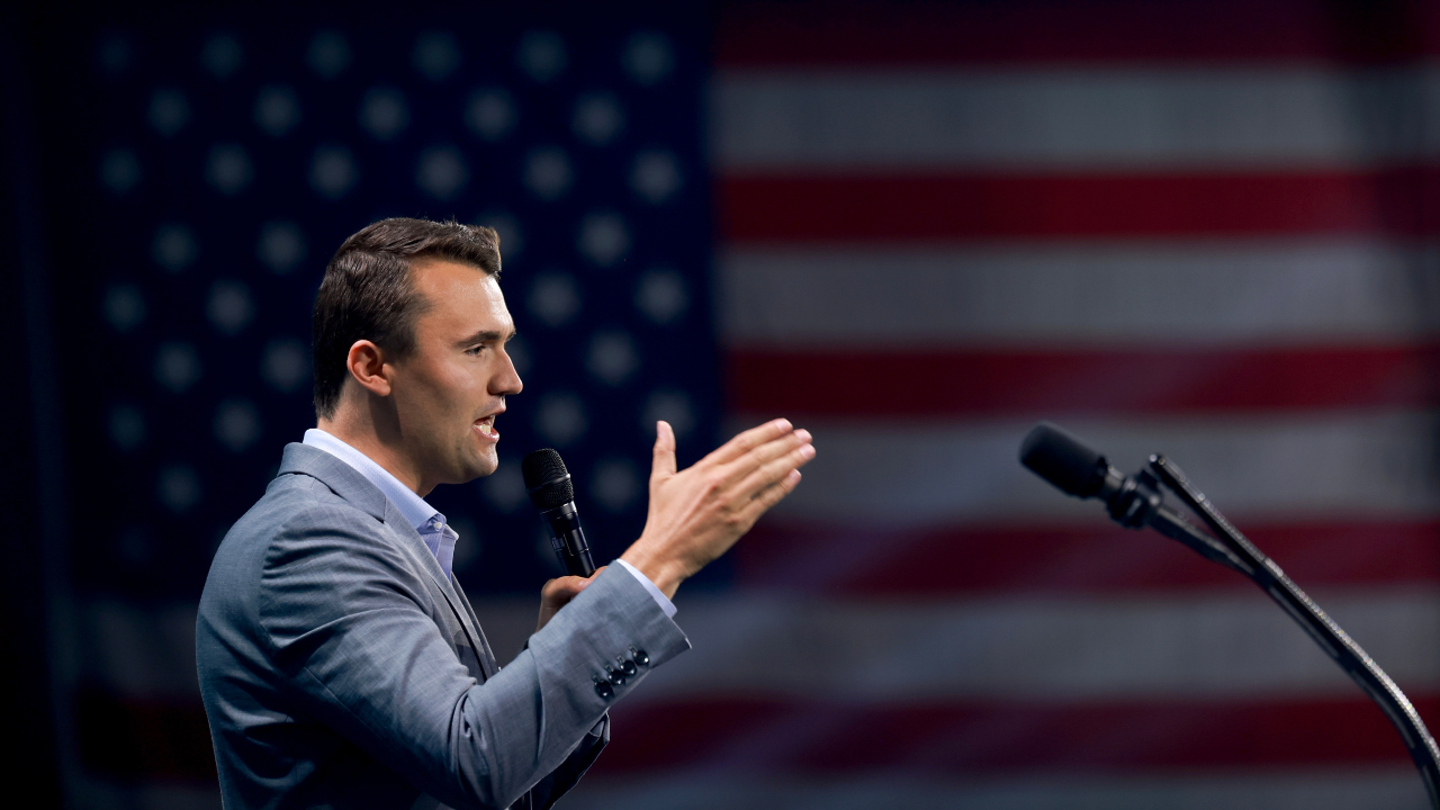
NFL legend Brett Favre shares update on tough battle with Parkinson's disease
Entities mentioned:
- Brett Favre: Determination, Self-preservation, Professional pride
- NFL: Legacy, Influence, Professional pride
- Philip Rivers: Competitive spirit, Ambition, Professional pride
Article Assessment:
Credibility Score: 85/100
Bias Rating: 55/100 (Center)
Sentiment Score: 45/100
Authoritarianism Risk: 20/100 (Strongly Democratic)
Bias Analysis:
The article presents a balanced view of Favre's situation, focusing on factual information from his podcast. While hosted on Fox News, the content doesn't show significant political leaning.
Key metric: Public Health Awareness
Let me tell you something - this story is a GAME-CHANGER! Brett Favre, one of the NFL's all-time greats, is showing us what it means to have a championship mentality off the field. He's facing his toughest opponent yet - Parkinson's disease - and he's bringing his A-game! Favre's tackling this health challenge head-on, just like he used to bulldoze through defensive lines. This isn't just a fourth-quarter play, folks - it's OVERTIME, and Favre's determination is off the charts! He's educating the public, breaking down the playbook on Parkinson's like he's in the film room. This is the kind of clutch performance that separates the legends from the rest. Favre's openness about his struggle is a TOUCHDOWN for public health awareness, inspiring others to step up to the plate in their own battles. I'm telling you right now, this is the kind of leadership we need - turning personal setbacks into a win for the whole team!

Brett Favre laments social media age's impact on society: 'It’s the wild, wild west'
Entities mentioned:
- Brett Favre: Professional pride, Legacy, Wariness
- David Kano: Curiosity, Professional pride
- College sports: Competitive spirit, Ambition, Recognition
- Social media platforms: Influence, Control, Recognition
Article Assessment:
Credibility Score: 70/100
Bias Rating: 55/100 (Center)
Sentiment Score: 30/100
Authoritarianism Risk: 20/100 (Strongly Democratic)
Bias Analysis:
The article presents Favre's opinions without significant counterarguments, leaning slightly conservative. However, it maintains a mostly neutral stance by simply reporting his statements without additional commentary.
Key metric: Social Media Engagement
Let me tell you something, folks - this is a GAME-CHANGING play in the social media arena! Brett Favre, the legendary quarterback, is stepping up to the plate and calling out the Hail Mary passes of instant gratification in our digital playbook. It's like we're in the fourth quarter of society's big game, and Favre's sounding the two-minute warning on how we're running our routes on social media. The college sports world is like a free agency frenzy, with players and coaches trading loyalty for the next big contract. It's a whole new ballgame out there, and Favre's telling us the refs have lost control. This wild, wild west of clicks and follows is turning our social media fields into a no-holds-barred competition where everyone's fighting for that highlight reel moment. I'm telling you right now, we're watching a major shift in the league of public discourse, and it's going to take a championship mentality to navigate this new playing field!

Brett Favre talks 'sad' reality of the world after Jets player wounded in shooting
Entities mentioned:
- Brett Favre: Professional pride, Wariness, Duty
- Kris Boyd: Self-preservation, Security, Recognition
- New York Jets: Competitive spirit, Unity, Professional pride
- New York Police Department: Justice, Duty, Security
Article Assessment:
Credibility Score: 75/100
Bias Rating: 55/100 (Center)
Sentiment Score: 25/100
Authoritarianism Risk: 35/100 (Generally Democratic)
Bias Analysis:
The article presents a balanced view, quoting Favre directly and providing police statements. It doesn't lean heavily towards any political stance, maintaining a neutral tone in reporting the incident.
Key metric: Violent Crime Rate
Let me tell you something - this story is a GAME-CHANGER for the NFL! We're not just talking about tackles on the field anymore, folks. This is a whole new ballgame where players are facing unexpected blitzes off the gridiron. The Jets' defensive playbook just got flipped upside down with Boyd taking a hit nobody saw coming. It's like the team's in sudden death overtime, fighting not just for yards, but for one of their own player's life! Favre, the seasoned quarterback he is, is calling an audible here, reminding us all that sometimes the most dangerous plays happen when the clock's run out and the stadium lights are off. This is a wake-up call, people! The league needs to step up its game plan for player safety beyond just concussion protocols. We're in the fourth quarter of a much bigger match - the one against violence in our cities. It's time for the NFL to show some championship-level leadership and tackle this issue head-on!

NFL legend Brett Favre would pick 'someone who loves this country' to perform Super Bowl halftime show
Entities mentioned:
- Brett Favre: Patriotism, Righteousness, Pride
- Bad Bunny: Influence, Recognition, Self-respect
- NFL: Unity, Recognition, Influence
- Roger Goodell: Control, Unity, Professional pride
Article Assessment:
Credibility Score: 70/100
Bias Rating: 65/100 (Lean Right)
Sentiment Score: 45/100
Authoritarianism Risk: 35/100 (Generally Democratic)
Bias Analysis:
The article leans right by emphasizing Favre's patriotic stance and the backlash against Bad Bunny. It gives more space to conservative viewpoints while briefly mentioning NFL's defense of their choice.
Key metric: National Unity and Cultural Representation
Let me tell you something, folks - we've got a HEATED MATCHUP brewing over the Super Bowl halftime show! Brett Favre, the legendary quarterback, is throwing a Hail Mary pass to change the game plan. He's calling an audible, trying to sub in a more patriotic player for the big show. But Commissioner Goodell is playing defense, stiff-arming the criticism and standing firm on his playbook. This is a classic clash of titans, with Bad Bunny caught in the cultural crossfire! It's fourth and long for those pushing for a lineup change, and Goodell's not budging an inch. We're seeing a real battle of wills here, folks - it's like two undefeated teams going head-to-head in the championship! Who's gonna come out on top in this clash of musical titans? I'm telling you right now, this controversy is going into OVERTIME!

Steelers' Aaron Rodgers says his NFL journey will conclude with Packers when he retires
Entities mentioned:
- Aaron Rodgers: Legacy, Pride, Professional pride
- Pittsburgh Steelers: Competitive spirit, Ambition, Recognition
- Green Bay Packers: Legacy, Loyalty, Pride
- Brett Favre: Legacy, Recognition
Article Assessment:
Credibility Score: 85/100
Bias Rating: 50/100 (Center)
Sentiment Score: 75/100
Authoritarianism Risk: 15/100 (Strongly Democratic)
Bias Analysis:
The article presents a balanced view of Rodgers' career and intentions, quoting him directly without editorializing. It provides context from both his current team and his history with the Packers.
Key metric: NFL Player Loyalty and Legacy
Let me tell you something - this story is HUGE! We're talking about a HALL OF FAME quarterback making a fourth-quarter decision that will shape his entire legacy! Aaron Rodgers is showing us what it means to have a championship mentality, folks. He's not just thinking about today's game, he's looking at the long game, the career scoreboard! This is a veteran player who knows how to read the field, and he's setting up a play that will resonate long after the final whistle. The Steelers might have Rodgers on their roster now, but make no mistake, his heart is still wearing green and gold. This is the kind of loyalty that builds dynasties, people! Rodgers is proving he's not just a great quarterback, he's a team player even when he's not on the team anymore. That's the kind of sportsmanship that makes the NFL great!

NFL legend Brett Favre endorses Jon Gruden for Arkansas head coach
Entities mentioned:
- Brett Favre: Influence, Legacy, Loyalty
- Jon Gruden: Ambition, Competitive spirit, Determination
- Arkansas Razorbacks: Competitive spirit, Pride, Recognition
- Sam Pittman: Self-preservation, Professional pride, Legacy
Article Assessment:
Credibility Score: 70/100
Bias Rating: 55/100 (Center)
Sentiment Score: 65/100
Authoritarianism Risk: 20/100 (Strongly Democratic)
Bias Analysis:
The article presents multiple perspectives, including direct quotes, which adds balance. However, it leans slightly towards favoring Gruden's potential appointment, potentially showing a slight center-right bias.
Key metric: NCAA Football Coaching Carousel
Let me tell you something - this coaching carousel is HEATING UP! We've got a real game-changer on our hands, folks! Brett Favre, the legendary quarterback, is making a fourth-quarter play by endorsing Jon Gruden for the Arkansas head coaching job. This is a HUGE power move in the SEC playbook! Gruden's been warming up on the sidelines, and now he's chomping at the bit to get back in the game. The Razorbacks are looking for a new captain to right their ship after Pittman fumbled the ball. Gruden's got that championship mentality and he's ready to bring his A-game to the SEC. This could be the Hail Mary pass Arkansas needs to get back in the national championship conversation!

Kai Trump reacts to death of 'close family friend' Charlie Kirk after Utah campus shooting
Entities mentioned:
- Kai Trump: Loyalty, Duty, Grief
- Charlie Kirk: Ambition, Influence, Legacy
- Donald Trump: Loyalty, Influence, Power
- Tim Tebow: Righteousness, Loyalty, Duty
- Brett Favre: Compassion, Unity, Recognition
- Utah Valley University: Security, Duty, Professional pride
Article Assessment:
Credibility Score: 75/100
Bias Rating: 55/100 (Center)
Sentiment Score: 20/100
Authoritarianism Risk: 35/100 (Generally Democratic)
Bias Analysis:
The article presents a balanced view of reactions from various political affiliations. While it gives prominence to conservative figures, it maintains a neutral tone in reporting the event.
Key metric: Political Polarization Index
Let me tell you something, folks - this is a GAME-CHANGING play in the political arena! Charlie Kirk, a star player for Team Conservative, has been taken out of the game in a shocking turn of events. This is like losing your franchise quarterback in the middle of the Super Bowl! The conservative lineup has lost a key player, and you can bet this will shake up their offensive strategy. We're seeing reactions pouring in from across the political playing field, with even athletes from other leagues weighing in. This tragic event is going to reverberate through the entire league, folks. It's a reminder that in the contact sport of politics, sometimes the hits are all too real. The conservative team will need to regroup, find a new playmaker, and adjust their game plan. This is the kind of momentum-shifting moment that can define a whole season - or in this case, a political era. Stay tuned, because the fourth quarter of this political matchup just got a whole lot more intense!

NFL legend slams league's 'divisive' social justice messages as counterproductive
Entities mentioned:
- National Football League: Unity, Recognition, Influence
- Brett Favre: Righteousness, Unity, Wariness
- Brian McCarthy: Professional pride, Duty, Unity
Article Assessment:
Credibility Score: 70/100
Bias Rating: 65/100 (Lean Right)
Sentiment Score: 35/100
Authoritarianism Risk: 30/100 (Generally Democratic)
Bias Analysis:
The article leans slightly right, evidenced by its focus on criticism of social justice initiatives and amplification of negative social media reactions. While it includes some balance by quoting NFL representatives, the overall framing gives more weight to opposing viewpoints.
Key metric: Social Cohesion Index
As a social scientist, I analyze that this article highlights the ongoing debate about the effectiveness of social justice messaging in professional sports. The NFL's efforts to promote unity through end zone slogans and the performance of the Black national anthem are being met with mixed reactions. Brett Favre's criticism suggests that these initiatives may be counterproductive, potentially widening societal divisions rather than bridging them. This controversy reflects broader societal tensions surrounding race relations and the role of institutions in addressing social issues. The public reaction, particularly on social media, indicates a polarized response to these initiatives, which could impact social cohesion on a national scale.

NFL legend Brett Favre talks decision to support Trump, cites trans athletes in girls sports
Entities mentioned:
- Brett Favre: Righteousness, Duty, Moral outrage
- Donald Trump: Power, Influence, Ambition
- Kamala Harris: Ambition, Power, Influence
- Sage Steele: Curiosity, Professional pride
Article Assessment:
Credibility Score: 65/100
Bias Rating: 70/100 (Lean Right)
Sentiment Score: 45/100
Authoritarianism Risk: 55/100 (Mixed/Neutral)
Bias Analysis:
The article leans right, presenting Favre's conservative views without significant counterbalance. While it includes direct quotes, the framing and lack of opposing viewpoints suggest a right-leaning bias.
Key metric: Political Polarization Index
As a social scientist, I analyze that this article highlights the increasing political polarization in the United States, particularly among public figures. Brett Favre's decision to publicly support Trump, despite potential backlash, demonstrates the widening gap between left and right ideologies. His focus on controversial issues like transgender athletes in sports and immigration reflects key conservative talking points. The article suggests a growing trend of celebrities using their platforms for political influence, potentially impacting voter behavior. Favre's comments about the need for conservatives to be more vocal indicate a perceived imbalance in political discourse, which could further exacerbate polarization.

Brett Favre opens up on harrowing battle with Parkinson's disease
Entities mentioned:
- Brett Favre: Self-preservation, Recognition, Anxiety
- Sage Steele: Curiosity, Professional pride
- Parkinson's Foundation: Duty, Righteousness, Unity
Article Assessment:
Credibility Score: 75/100
Bias Rating: 50/100 (Center)
Sentiment Score: 35/100
Authoritarianism Risk: 20/100 (Strongly Democratic)
Bias Analysis:
The article presents a balanced view of Favre's experience with Parkinson's, without political slant. It includes factual information from reputable sources like the Parkinson's Foundation, maintaining a neutral stance.
Key metric: Public Health Awareness
As a social scientist, I analyze that this article significantly impacts public health awareness by highlighting a high-profile case of Parkinson's disease. Brett Favre's openness about his diagnosis and symptoms personalizes the condition for many, potentially leading to increased understanding and empathy. This celebrity disclosure may encourage others to seek early diagnosis or support research efforts. The inclusion of statistics about Parkinson's prevalence underscores the disease's societal impact, which could influence policy discussions and research funding allocation.